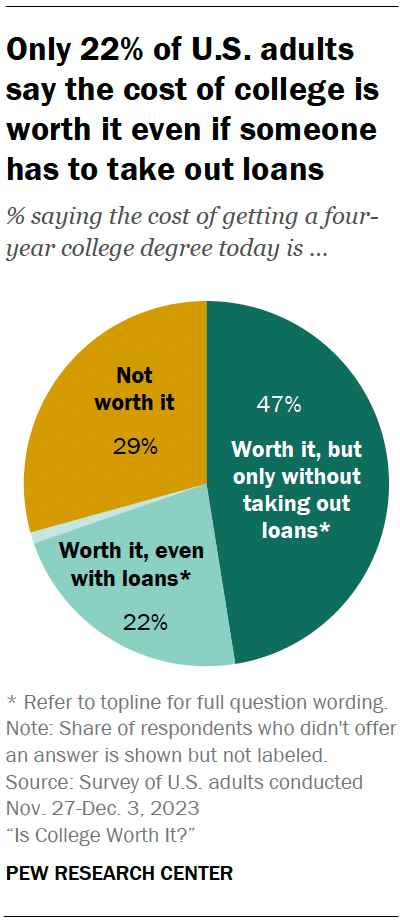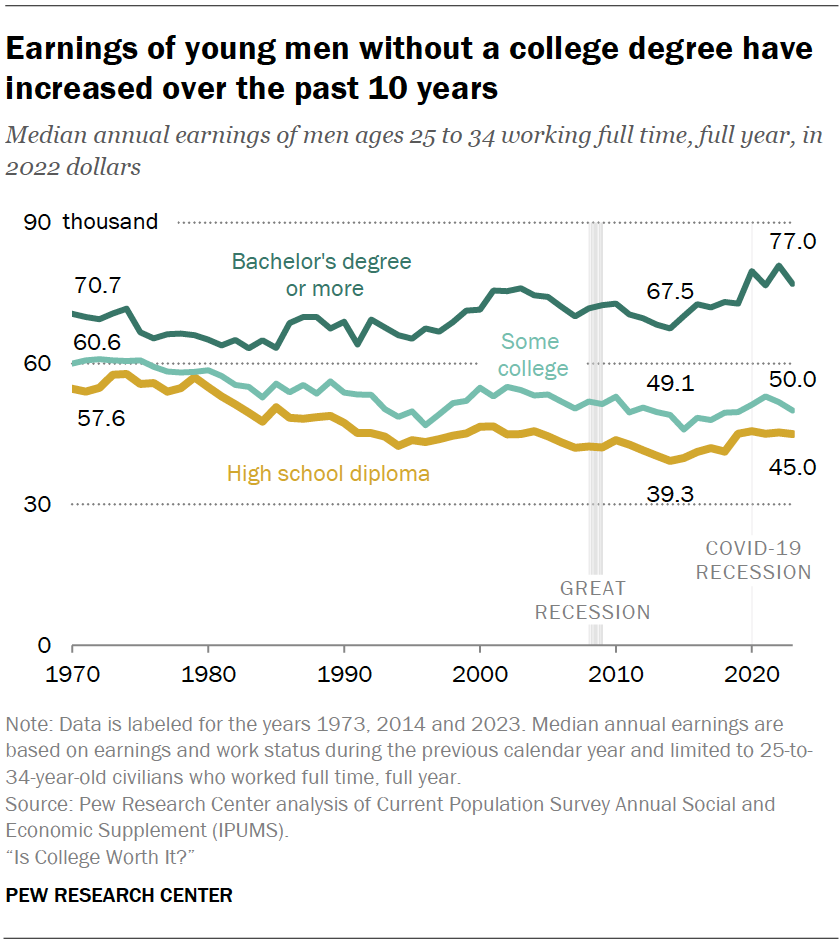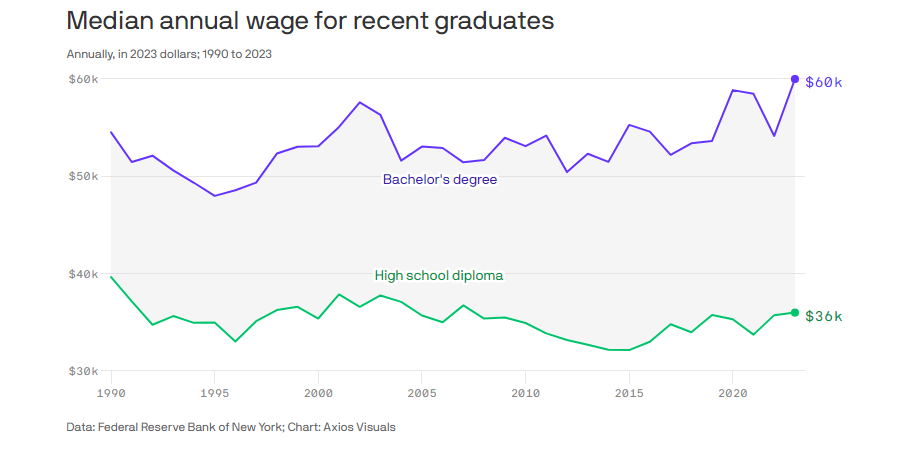Many Americans are questioning the value of a college education.
Recent surveys conducted by Pew Research shed light on this rising trend.
Only one in four U.S. adults say it’s extremely or very important to have a four-year college degree to get a well-paying job.
Roughly half say it’s less important to have a four-year college degree today to get a well-paying job than it was 20 years ago,
Only 22% say the cost of getting a four-year college degree is worth it, even if someone has to take out loans.

While earnings of young men without a college degree have slightly narrowed the gap over the last decade, the wage gap between those with a college degree and those without is significant.

What gives?
What’s with the disconnect when the lifetime earnings chasm between H.S. and College graduates is undeniable?
What’s bugging people about college?
IMHO, this conversation is more about price than value. Many cannot comprehend that they must pay over 90k annually to guarantee their children a slice of the American Dream.
They’re right.
Stanford University, an elite, pricey college, conducted a study exploring the factors that led to a successful college and post-graduate experience. Surprisingly, costly tuition didn’t cut.
The following items, widely available in most of the over 5,000 colleges in the U.S., moved the needle.
- The opportunity to engage in internships while still in school to determine if one’s chosen profession was a good fit.
- The ability to find mentors to guide students to this often confusing part of their lives is usually the key to a fulfilling career.
- Small class sizes that treated each student as a unique individual.
- Student involvement in the college community to foster connections and contacts is critical.
- Ignore peer pressure and choose a college based on personal fit, not rankings.
In many cases, the starting salaries for many majors are equal to those charged by state schools, which charge 1/3 as much. In this example, a Computer Science graduate from relatively inexpensive Binghampton Or Stony Brook would command a similar starting salary to their much pricier counterparts, Boston College and Boston University. (Full disclosure: I am a B.U. graduate.)
The cost of attendance for N.Y. residents at Stony Brook is $31,306, with Binghamton at $31,372. Conversely, Boston University is $92,122. The starting salary for Electrical Engineering Graduates is roughly equal.

Source: College Aid Pro
Another reason for disillusionment regarding the college experience is students’ lack of community involvement, a key ingredient to building a network. Networks get you jobs more than G.P.A.s, especially in these times of carpet bombing potential employers with digital resumes. The personal touch makes a huge difference. Ask any recruiters barraged with 10,00 resumes for a single position.
The Washington Post disclosed these shocking statistics regarding how today’s college students spend their time. Spoiler Alert – It’s not partying.
There has been a steady decline in college partying since the Great Recession and a precipitous drop in general socializing among young adults. This is probably due to the advent of ubiquitous smartphones and social media. Students now spend almost nine hours a week on social media, plus five hours of streaming television and five hours surfing the internet weekly. ( These latter estimates, from older surveys, are probably underestimates.)
It’s impossible to immerse yourself in the college community with your face glued to various screens.
Is college still worth it?
Yes, but…..

Parents need education on the following facts:
- Spending almost 400k for a four-year undergraduate degree is unnecessary to give your child a seat at the table.
- When students go to college, a significant component of their future success hinges on establishing close personal connections with mentors, professors, and other students and becoming active participants in their school’s community.
- College isn’t for everyone. One of our society’s most significant failures is stigmatizing trade school and apprenticeship programs. Brainwashing parents into thinking their child’s only path to success is attending an expensive four-year college does indelible harm to all stakeholders.
There’s no argument that a four-year college degree tends toward higher salaries and the opportunity to create wealth over time, but nothing is guaranteed.
Ignoring price, personal fit, active experience, and alternative educational paths is not in anyone’s best interests.





